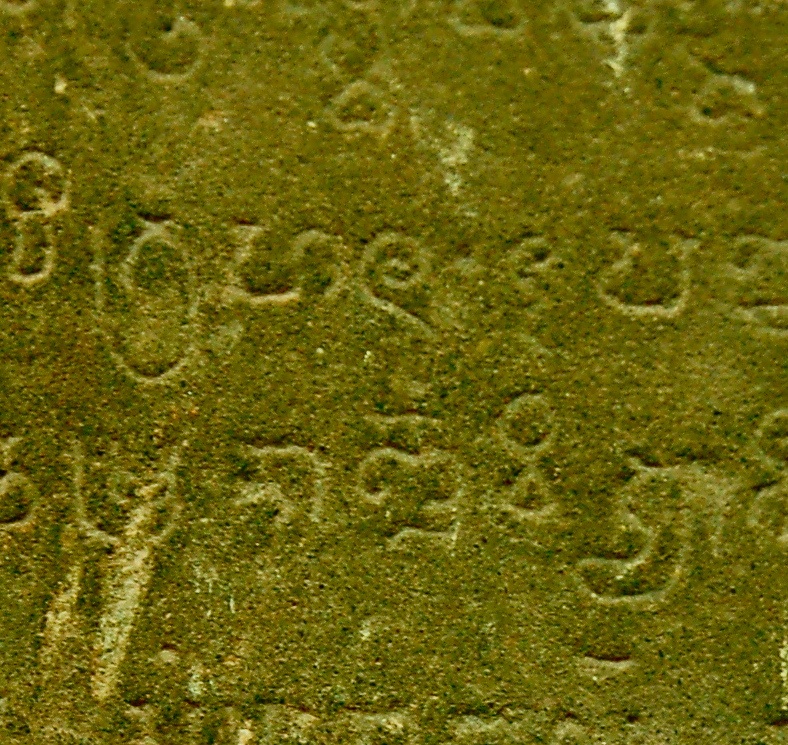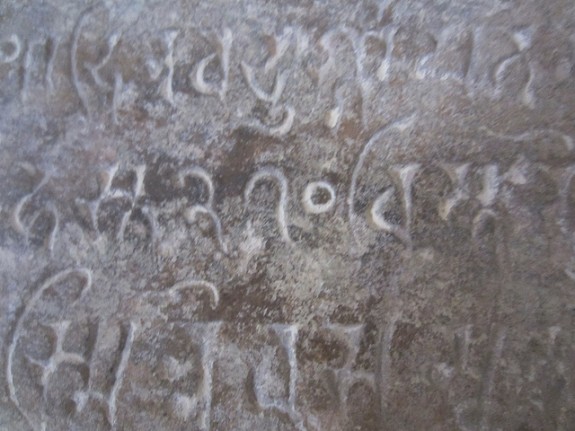
Journey of Zero: How a simple number revolutionised the world from ancient India to our digital era

Author: Jovan Kurbalija
The concept of ‘nothing’ seems intuitively simple, yet its mathematical representation – zero – is one of humanity’s most profound intellectual achievements. Far more than just a placeholder or an empty space, zero functions as a number in its own right, a point of origin, and a cornerstone of modern mathematics, science, technology, and finance. Its journey from ancient abstract concepts to the binary code powering our digital world is a testament to cross-cultural exchange and intellectual evolution. This document traces the fascinating history of zero, exploring its independent emergence and development across different civilisations, culminating in its indispensable role today.
While there are other instances of the use of zero (see textbox below), our focus is on the direct lineage of zero from Asia, through the Mediterranean, to Europe, and beyond.

The birth of zero as a number in Ancient Inidia
It was in ancient India that zero transitioned from a mere placeholder to a fully functional number, revolutionising mathematics.
- Philosophical Roots: Shunya and Shunyata The conceptual foundation for mathematical zero in India is often linked to philosophical traditions, particularly the Buddhist concept of Shunyata (emptiness or void).¹⁴ Philosophers like Nagarjuna (c. 2nd c. CE) expounded on emptiness as a fundamental nature of reality, providing a cultural and intellectual environment receptive to abstract concepts like ‘nothingness’ having significance.¹⁵ This philosophical backdrop facilitated the acceptance of Shunya – the Sanskrit term for emptiness or void – as a mathematical entity.¹⁶
- Mathematical Formalisation: Aryabhata and Brahmagupta Building on earlier placeholder concepts, Indian mathematicians began to treat Shunya as a number. Aryabhata (c. 5th c. CE) is credited with using placeholders in his place-value system.¹⁷ The decisive step came with Brahmagupta (628 CE), whose work Brahmasphutasiddhanta formalised arithmetic operations involving zero.¹⁸ He established rules for addition, subtraction, and multiplication with zero, such as “zero subtracted from zero is zero”.¹⁹ While his attempt to define division by zero (0/0 as 0) was later proven incorrect,²⁰ his work was the first systematic treatment of zero as a numeral with defined operations.
To date, archaeological efforts have unveiled two significant artefacts in India that demonstrate the early use of the numeral zero:
Transmission and expansion: The Islamic Golden Age
The intellectual fervour of the Islamic Golden Age played a critical role in absorbing and disseminating the Indian numerical system, including zero.
Al-Khwarizmi and the House of Wisdom
Muḥammad ibn Mūsā al-Khwārizmī, a prominent scholar working in the House of Wisdom in Baghdad in the early 9th century CE, was instrumental in this process.²⁵ The House of Wisdom was a major centre for translating and studying texts from various cultures, including Indian mathematical works.²⁶ Al-Khwarizmi’s treatises, particularly his work on Indian arithmetic, systematised the use of the Hindu-Arabic numerals and their associated methods.²⁷

The Concept of Sifr
In Arabic, the Indian Shunya was translated as sifr,²⁸ meaning “empty” or “nothing.” This term is the root of the English words “cipher” and “zero”.²⁹ Al-Khwarizmi’s clear exposition of arithmetic using sifr was foundational for its adoption across the Islamic world.
Gateway to Europe
The knowledge preserved and advanced during the Islamic Golden Age eventually made its way to Europe, largely through Spain and Sicily, which were points of cultural exchange. Latin translations of Al-Khwarizmi’s works, such as Algoritmo de Numero Indorum (literally “Algorithmic of the Indian Numbers”) in the 12th century, were crucial in introducing the Hindu-Arabic numeral system, including zero, to European scholars.³⁰
Adoption in Europe: Fibonacci’s revolution
Despite its utility, the adoption of zero and the Hindu-Arabic numerals in Europe faced initial resistance, largely due to ingrained habits with Roman numerals and suspicion of ‘foreign’ concepts.
Liber Abaci and the Power of Place Value
The tide turned significantly with Leonardo of Pisa, better known as Fibonacci. Having travelled and studied in North Africa, he recognised the immense superiority of the Indian numeral system over the clumsy Roman system still prevalent in Europe.³¹ In 1202, he published Liber Abaci (Book of Calculation), which explicitly introduced the Hindu-Arabic numerals (1, 2, 3, 4, 5, 6, 7, 8, 9, and 0) to a European audience.³² The book demonstrated, with clear examples, how using zero and place value made arithmetic operations like addition, subtraction, multiplication, and division vastly simpler and faster than with Roman numerals.³³

Overcoming Resistance and Driving Progress
Fibonacci’s work was a powerful argument for the new system based on practical efficiency. While resistance persisted in some quarters (some cities even initially banned the use of Hindu-Arabic numerals in commerce, fearing fraud³⁴), merchants and scholars increasingly adopted the system because of its undeniable advantages.³⁵ The ease of calculation facilitated by zero enabled significant advances in accounting, banking, algebra, and later, calculus, fundamentally supporting Europe’s burgeoning commerce and scientific revolution.³⁶
Zero in the digital era
The evolution of zero culminates in its central role in today’s digital world. In the binary system, which forms the basis of modern computing, digits 0 and 1 represent one bit. This seemingly simple binary language has led to the formation of bytes, kilobytes, megabytes, terabytes, and beyond, shaping the digital landscape we experience today.
The binary foundation: All modern computing is based on the binary system, which uses only two digits: 0 and 1. Every piece of data, every instruction, every image, sound, or text document in a computer is ultimately represented as a sequence of these two states. Zero represents ‘off’, ‘false’, or ‘low voltage’, while one represents ‘on’, ‘true’, or ‘high voltage’. This simple duality, formalised by Gottfried Wilhelm Leibniz in the 17th century, allows complex logical operations and computational processes to be built from basic electronic switches.
Logic and computing: Zero is not just a placeholder in binary; it is an active participant in logical operations (like AND, OR, NOT) that form the basis of computer processors. Representing numbers, text (via encoding systems like ASCII, where each character maps to a binary code, e.g., ‘B’ is 66, or 01000010 in binary), and instructions, zero is indispensable. Without zero, the positional value and logical framework of binary computing would collapse, rendering all digital technology impossible.
Parting thoughts
The journey of zero is a remarkable story of human ingenuity and cross-cultural fertilisation. Independently conceived as a placeholder in various ancient civilisations like Babylon, China, and the Maya, it achieved its full potential as a number in ancient India, integrated with philosophical concepts of emptiness and formalised by mathematicians like Brahmagupta.
Transmitted through the vibrant intellectual centres of the Islamic Golden Age via scholars such as Al-Khwarizmi, it eventually arrived in Europe, championed by figures like Fibonacci, who demonstrated its revolutionary power for calculation and commerce.
Today, zero is not just a number; it is half of the fundamental language of the digital age, underpinning the binary system that powers computers, communication, and countless aspects of modern life. From a concept representing nothing, zero truly revolutionised the world.
Previous episodes of ‘Recycling Ideas’
More readings on AI, governance, and philosophy
Click to show page navigation!


















